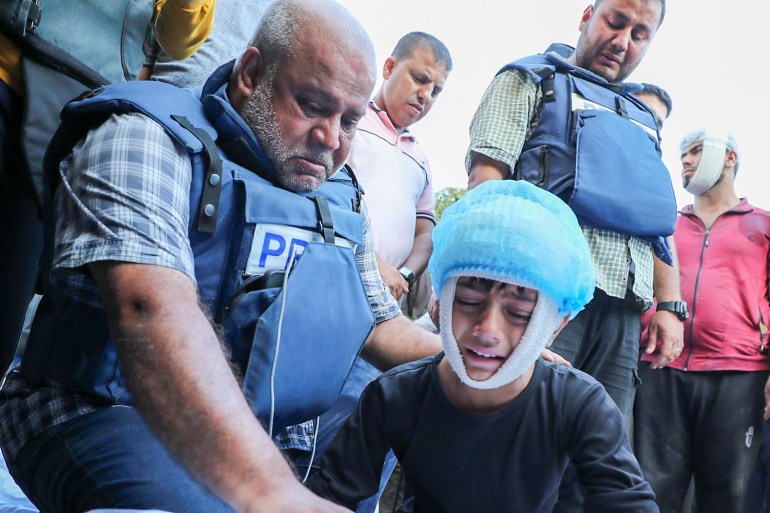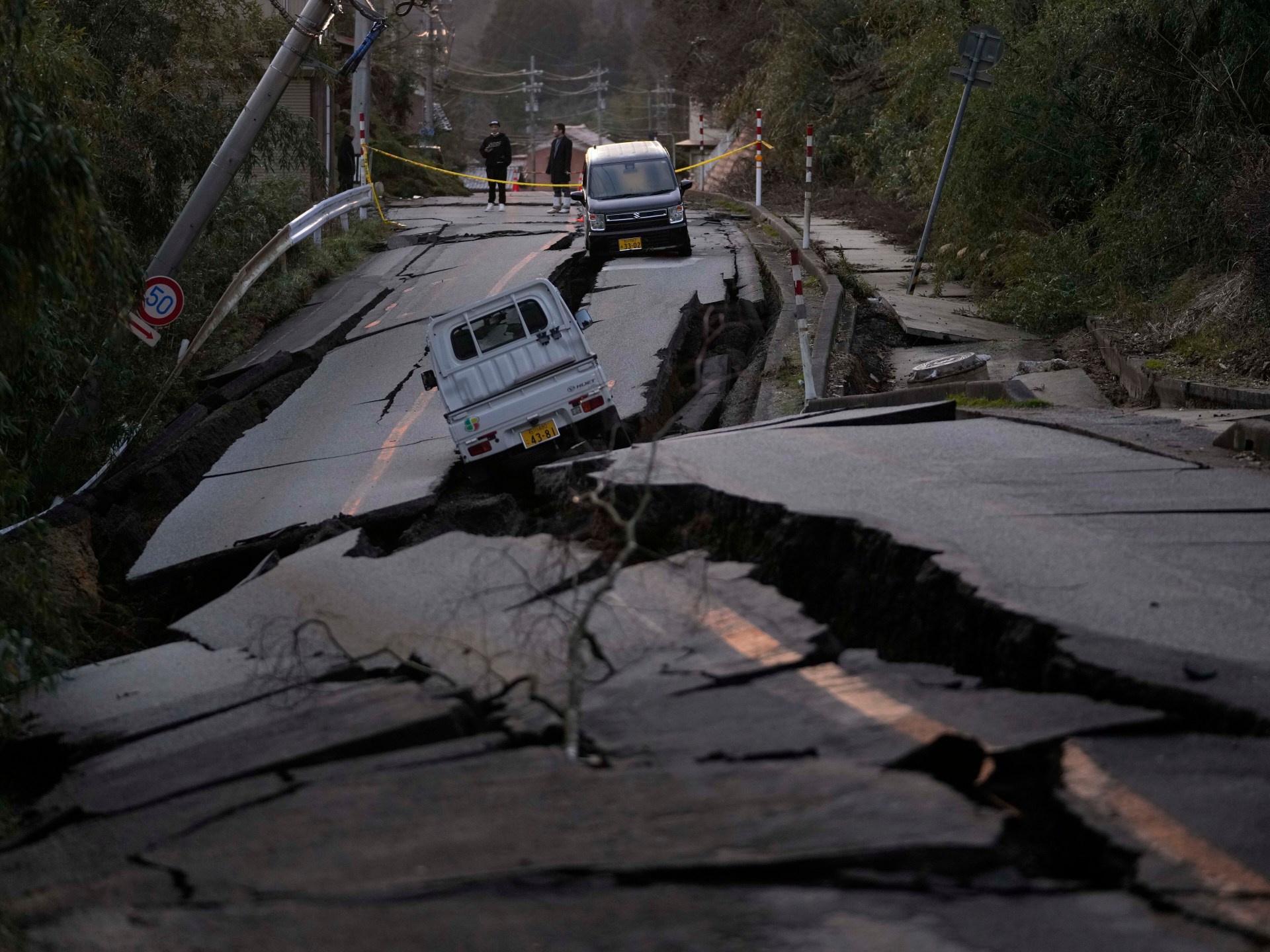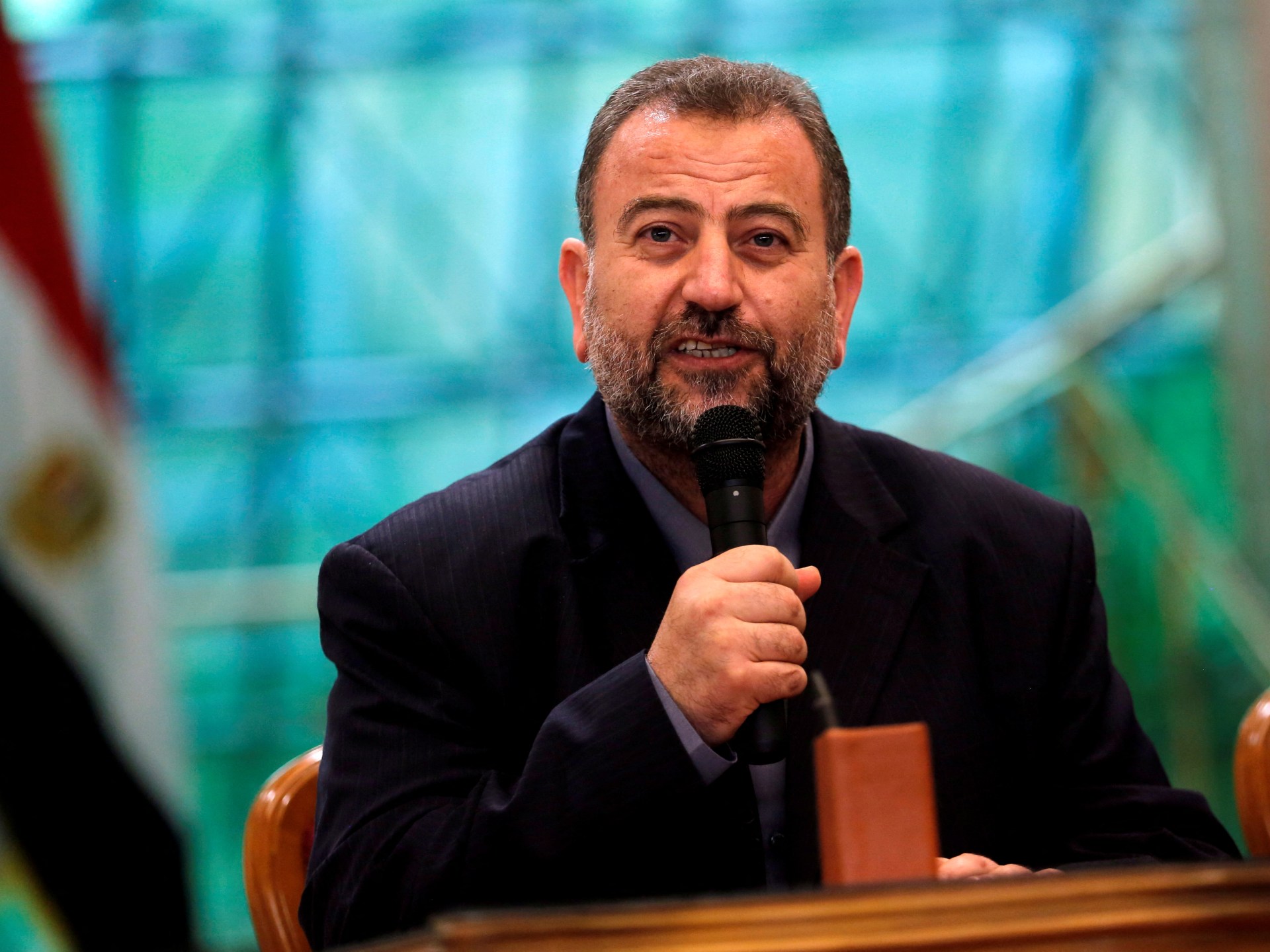A refugee camp bombed, twice; a communications blackout; an exit, for a few – our Gaza coverage this week.
Published On 3 Nov 2023
A refugee camp bombed, twice | A communications blackout | Gaza’s mothers, Gaza’s journalists | An exit, for a few. Our coverage of Gaza this week:
‘Help us to stay alive’
133 babies hadn’t yet reached the age of one, killed before they could walk or talk.
16-year-old Mahmoud wanted to be a journalist, just like his father, veteran Al Jazeera correspondent Wael Dahdouh.
Among the oldest killed are those who were Nakba survivors.
Produced by our team at AJ Labs, “Know Their Names” is a series of visualisations that puts a name to some of the many Palestinians killed by Israeli attacks, a figure that has now climbed above 9,000.
A refugee camp, a blackout
“It’s back, my sweetheart…
“So let’s take a picture to reassure them we’re OK…
“The 24th dawn of the war…”
That’s a conversation Amjad al-Dirdasawii had with his three sons as the internet shakily started back again after a near-total communications blackout in Gaza this week.
The blackout by Israel was reimposed later in the week, and led to fears of an escalated Israeli bombing campaign. And bomb they did, even hitting the densely populated Jabalia refugee camp for two days in a row. The UN said the attack could constitute a war crime.
An exit for a few, very few
Brought in on a wheelchair, 10-year-old Aseel Al-Astal smiles, then winces in pain, only to smile again. She’s one of the hundreds of wounded allowed to cross into Egypt from Gaza, through the Rafah crossing, to seek treatment there; a fraction of those impacted.
“I am very happy because I can be treated and be able to walk again,” she said, positive despite her injuries and losing 15 relatives to Israeli bombing.
Foreign nationals have also been allowed to leave through the crossing – but bombs are still dropping.
“What shall I do now?” Nadia Eldin wondered, sobbing as she spoke to Al Jazeera. “There is no security, bombs everywhere.”
 A Palestinian holding a foreign passport looks through her bag as she waits for permission to leave Gaza [Ibraheem Abu Mustafa/Reuters]
A Palestinian holding a foreign passport looks through her bag as she waits for permission to leave Gaza [Ibraheem Abu Mustafa/Reuters]
Being a woman, a mother in times of war
Palestinian women have resorted to taking pills to delay their menstrual cycle because Israel’s offensive has created unsanitary conditions. But the pills may have side effects, from irregular vaginal bleeding to nausea.
Meanwhile, Gaza’s mothers fear for their premature babies as the Israeli siege cripples hospitals across the enclave.
“Every second the war continues, my heart burns with fear for my child and for all children,” said one mother.
Fear over the war spreading
In Lebanon, fears of a regional conflict are reaching a crescendo as Israel’s fighting with Hezbollah continues, and as its leader Hassan Nasrallah gave his first speech since the war began. But even without a ground war, the economic fallout has been painful..
Meanwhile, Yemen’s Houthi rebels say they fired a number of ballistic missiles and drones towards Israel, warning of future attacks.
Reporting atrocities, facing their own
And as Al Jazeera journalists risk their lives to report on these atrocities in Gaza, they are having to come face to face with their own. We delve into the lives of the members of Wael Dahdouh’s family killed last week during an Israeli raid.
 Al-Jazeera correspondent Wael Dahdouh, center, mourns his wife, son, daughter, and grandson, killed in an Israeli airstrike on Nuisserat refugee camp [Ali Mahmoud/AP]
Al-Jazeera correspondent Wael Dahdouh, center, mourns his wife, son, daughter, and grandson, killed in an Israeli airstrike on Nuisserat refugee camp [Ali Mahmoud/AP]
In another tragedy, Mohamed Abu Al-Qumsan, a broadcast engineer with Al Jazeera’s bureau in Gaza, lost 19 family members, including his father and two sisters, in raids on the Jabalia refugee camp.
Correspondent Youmna ElSayed also received a threatening phone call, claiming to come from the Israeli army, warning her and her family to immediately leave their home.
And now for something different
Iraq’s elusive, shape-shifting Tantals; Tunisia’s wrinkled hammam maiden keeping young women at bay; the djinns in Sudan’s Red Sea city of Suakin; and the tale of Dr. Dahesh, a barber with supernatural powers from Lebanon.
They’re all featured in our spooky Arab stories for Halloween. Have a read, if you dare.
![Lebanon's Dr Dahesh [Omar Houssien/Al Jazeera]](https://www.aljazeera.com/wp-content/uploads/2023/10/LEBANON1-1698759693.jpg?w=770&resize=770%2C501) Lebanon’s Dr Dahesh [Omar Houssien/Al Jazeera]
Lebanon’s Dr Dahesh [Omar Houssien/Al Jazeera]
Briefly
Inside Benjamin Netanyahu’s mind: How is Israel’s PM plotting the Gaza war? ‘So the world knows’: Gaza parents mark children’s names on bodies amid bombing Bilal went out to harvest his olives, an Israeli settler shot him Q&A: Former UN official Craig Mokhiber on Gaza and genocide ‘From the river to the sea’: What does the Palestinian slogan really mean?Quote of the Week
“They beat a prisoner who has diabetes and takes three injections a day. He was throwing up so much blood … we were worried sick for two hours that he would be martyred from the amount of blood that he was throwing up.” | Salah Fateen Salah, a former prisoner, recently released, recounting Israeli forces beating a fellow inmate on October 8, following Hamas’ attack a day earlier.

 Movie
Movie 5 months ago
167
5 months ago
167 






![Presidents Day Weekend Car Sales [2021 Edition] Presidents Day Weekend Car Sales [2021 Edition]](https://www.findthebestcarprice.com/wp-content/uploads/Presidents-Day-Weekend-car-sales.jpg)



 English (United States)
English (United States)